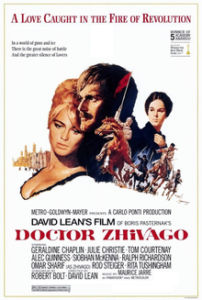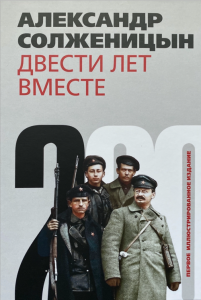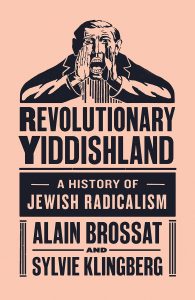Tag: Bolshevik Revolution
-
David Lean’s epic anti-Communist romance Doctor Zhivago (1965) is a great and serious work of art. Doctor Zhivago was initially panned by the critics — probably not because it is a bad film, but because it was very bad for Communism. Nevertheless, it was immensely popular. It is still one of the highest-grossing movies of all time, adjusted for inflation. It also won five Oscars — for Best Adapted Screenplay (Robert Bolt), Best Original Score (Maurice Jarre), Best Cinematography (Freddie Young), Best Art Direction, and Best Costume Design. (more…)
-
By the time the reader begins the second volume of Aleksandr Solzhenitsyn’s Two Hundred Years Together, he’s aware of a complex yet fragile balance established by the author in volume one. Jews and Russians have shared the same empire and language for centuries, but not without conflict brought about by their different natures and the exigencies of history. (more…)
-
 4,457 words
4,457 words 4,457 words
4,457 wordsCzech version here
The white man stood tall and proud. He was handsome and confident, and was well-dressed in his white summer-weight frock coat. Regal, although not quite the Tsar. As Prime Minister, he was the next best thing. Despite this, Pyotr Stolypin had remarkable little security around him when he attended a play at the Kyiv Opera House on September 14th, 1911. His relationship with the Tsar had soured a bit recently due to his insistence that the local governments of the western provinces (called zemstvos) be dominated by the Russian people and not the influential Polish landowners. (more…)
-
 3,515 words
3,515 words 3,515 words
3,515 wordsA recurring theme in Book 1 of Aleksandr Solzhenitsyn’s March 1917 — or Node III of his vast Red Wheel opus — is “this could have been prevented.” Of course, this refers to the first successful socialist revolution in Russia, which took place in March 1917 (or in February, according to the Julian Calendar). In March 1917, Solzhenitsyn offers a wealth of perspective on the fateful events in Petrograd which led to the abdication of the Tsar and the monarchy’s ultimate replacement with the Provisional Government. (more…)
-
Alain Brossat and Sylvie Klingberg
Revolutionary Yiddishland: A History of Jewish Radicalism
New York: Verso, 2016.In the relatively recent publication in English (for the first time) of the 1983 French book Revolutionary Yiddishland, Jewish authors Alain Brossat and Sylvie Klingberg document Jewish radical Leftist politics in Europe in the early to mid-20th century. (more…)
-
3,284 words
 Tuesday, November 7th, marked the one hundredth anniversary of the Bolshevik Revolution (called the “October Revolution,” since in the Julian calendar it took place on October 25th). But you would never know it.
Tuesday, November 7th, marked the one hundredth anniversary of the Bolshevik Revolution (called the “October Revolution,” since in the Julian calendar it took place on October 25th). But you would never know it.Vladimir Putin declared last year that discussion of the Revolution should be left to professional historians— (more…)
-
2,940 words
The Internationalist Perspective of Communism
Volkogonov writes that Trotsky was fixated on the coming of a ‘world revolution’. Not unrelated was Trotsky’s thesis that, “The Jewish question, as a result of the whole of Jewish history, is international . . . (more…)
-
August 10, 2016 Dara Halley-James
The Sixty Million
Jews & Bolshevism, Part 4 -
Part 3 of 5
The Ukraine Complication
A “Dec. 20 1922 New York Times article . . . detailed the activities of a ‘Jewish army’ made up of 500,000 men that was established by Lenin’s Bolshevik regime to do its bidding in Ukraine.” It was “a supreme force in some cities.” Then there was the Cheka. Solzhenitsyn relates American historian Bruce Lincoln’s estimate that the Ukrainian Cheka was 80 percent Jewish. (more…)
-
Part 2 of 5
The October Revolution
Inspired by the Balfour Declaration, 80 percent of Jews had voted Zionist in the Constituent Assembly elections. But Zionism = fanatical ethno-religious chauvinism + socialism, and that combination could just as easily transmute into leadership of Communism, thereby harnessing a largely Jewish-based universalistic ideology to a particularistic agenda. (more…)
-
August 4, 2016 Dara Halley-James
The Sixty Million
Jews & Bolshevism, Part 1Part 1 of 5
Editor’s Note:
The following continues an extended series of excerpts from the penultimate draft of Dara Halley-James’ forthcoming book The Sixty Million: How Leading Jewish Communists, Zionists, and Neocons Brought on a Dozen Holocausts.
(more…)









